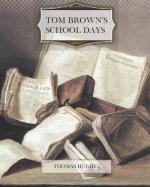Yet why should I, after all, abuse the gadabout propensities of my countrymen? We are a vagabond nation now, that’s certain, for better for worse. I am a vagabond; I have been away from home no less than five distinct times in the last year. The Queen sets us the example: we are moving on from top to bottom. Little dirty Jack, who abides in Clement’s Inn gateway, and blacks my boots for a penny, takes his month’s hop-picking every year as a matter of course. Why shouldn’t he? I’m delighted at it. I love vagabonds, only I prefer poor to rich ones. Couriers and ladies’-maids, imperials and travelling carriages, are an abomination unto me; I cannot away with them. But for dirty Jack, and every good fellow who, in the words of the capital French song, moves about,
“Comme le limacon,
Portant tout son bagage,
Ses meubles, sa maison,”
on his own back, why, good luck to them, and many a merry roadside adventure, and steaming supper in the chimney corners of roadside inns, Swiss chalets, Hottentot kraals, or wherever else they like to go. So, having succeeded in contradicting myself in my first chapter (which gives me great hopes that you will all go on, and think me a good fellow notwithstanding my crotchets), I shall here shut up for the present, and consider my ways; having resolved to “sar’ it out,” as we say in the Vale, “holus bolus” just as it comes, and then you’ll probably get the truth out of me.
CHAPTER II—THE “VEAST.”
“And the King commandeth and forbiddeth, that from henceforth neither fairs nor markets be kept in Churchyards, for the honour of the Church.”—Statutes : 13 Edw. I. Stat. II. cap. vi.
As that venerable and learned poet (whose voluminous works we all think it the correct thing to admire and talk about, but don’t read often) most truly says, “The child is father to the man;” a fortiori, therefore, he must be father to the boy. So as we are going at any rate to see Tom Brown through his boyhood, supposing we never get any farther (which, if you show a proper sense of the value of this history, there is no knowing but what we may), let us have a look at the life and environments of the child in the quiet country village to which we were introduced in the last chapter.
Tom, as has been already said, was a robust and combative urchin, and at the age of four began to struggle against the yoke and authority of his nurse. That functionary was a good-hearted, tearful, scatter-brained girl, lately taken by Tom’s mother, Madam Brown, as she was called, from the village school to be trained as nurserymaid. Madam Brown was a rare trainer of servants, and spent herself freely in the profession; for profession it was, and gave her more trouble by half than many people take to earn a good income. Her servants were known and sought after for miles round. Almost all the girls who attained a certain




